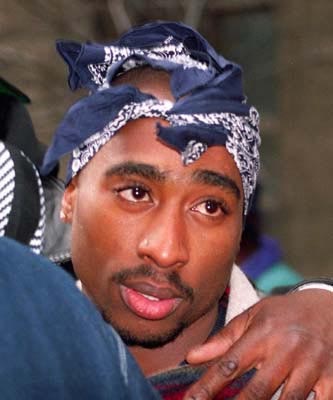
Why do our young Ethiopians want to be like Tupac?

My first reaction to Wednesday's front page story in Haaretz was disgust. But maybe I've just read too many racism in the media articles for my graduate studies.
Ethiopian youth dance in Ashkelon, but dream of Harlem is a feature story about Ethiopian youth in Israel. While Haaretz should be applauded for covering Israel's Ethiopian community, the reporters - as well as the editors who selected the headline, photos and captions - likely perpetuated the racism in this country toward Ethiopians.
The story teaches some valuable lessons about Ethiopians in Israel:
-They like rap music
-They lie to their parents to get money to buy vodka
-They like clubs
-They would prefer to be in Harlem than Israel
But is any of this true?
The story ran on the front page of the Hebrew edition, above the fold, with the photo you can see in the English story above. Continued inside the paper, there is another photo of Ethiopians "fueling up" (yes, that's the language Haaretz used) and drinking vodka.
In addition, the premise of the headline (The same one was used in the Hebrew and English editions.) is questionable. When asked about their identify, the young Ethiopians interviewed for the story said:
"First of all Jewish, then Ethiopian."That doesn't sound like Harlem to me.
"Jewish, for sure."
"Israeli and Ethiopian both."
Personally, I also don't understand what's so terrible about young Ethiopians creating for themselves their own identity in Israel. Is Haaretz - and the rest of Israel's elite - nervous that young Ethiopians are (God forbid!) different than the rest of us?
The story also neglects mention of discrimination against Ethiopians. In the past the Israeli press has had more than a few stories about religious Ethiopians being refused admission to religious schools.
Maybe this is a factor? Maybe not all young Ethiopians drink vodka and listen to rap music?
The headlines and captions are irresponsible and the content fails to meet even basic standards of responsible journalism. It's based on the research of one anthropologist and a single night interviewing young Ethiopians at a club.
More is to be expected from a paper that claims to be the New York Times of Israel.